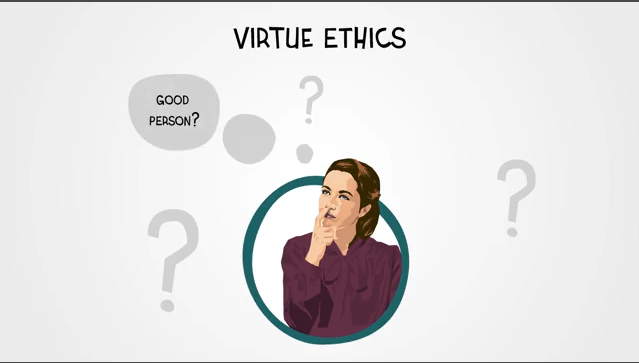Virtue ethics is the next approach that we will cover. This brand of ethics does not aim at establishing codifiable universal principles that would amount to a decision procedure for determining what the right action would be in any given case, but rather focuses on the role of virtues and the character of a person. It has its origins in ancient Greek philosophy, in the thought of Socrates, Plato and Aristotle. A key question in virtue ethics is how to mould individual character based on models of virtue, or to put it more simply: How can we become a ‘good person’? (Athanassoulis, n.d.; Plaisance, 2014: 24). One should strive to develop a ‘virtuous character’. This entails a much broader perspective than the other two approaches, which focus on specific ethical dilemmas that need to be solved. A virtue may be considered a character trait, but it is more than this: […]
Consequentialism and Utilitarianism in Media Ethics & Governance
One of the principal ethical philosophies is consequentialism, a class of normative ethical theories. This theory can be seen as one of the leading moral perspectives in Western society, and it has dominated media ethics during the last century. As its name suggests, consequentialism holds that the consequences of one’s conduct are the ultimate basis for any judgment about the rightness or wrongness of that conduct. Thus, from a consequentialist standpoint, a morally right act is one that will produce a good outcome, or consequence. One of the philosophies within consequentialism – besides several classic variations – is utilitarianism. Utilitarianism is a theory in normative ethics which holds that the best moral action is the one that maximizes utility. Utility in this context is happiness, or pleasure. In short, this is about ‘the greatest good for the greatest number’. By asking what will bring the greatest amount of happiness to […]
Ethics & Morals in Media Ethics & Governance
When discussing communication ethics, it is important to understand exactly what is meant by ‘ethics’. Sometimes, people confuse ethics with behaving in accordance with social conventions, religious beliefs and the law. And, sometimes the terms ethics and morals are used interchangeably, because they clearly are both related to “right” and “wrong” conduct. However, they are not the same thing at all! Ethics refer to rules provided by an external source. They are governed by professional and legal guidelines within a particular time and place. Ethics are all about how we deal with ‘grey areas’. Ethics therefore refer to the value judgments we make on bigger and smaller matters, in communication as well as in other fields. A concrete example of ethics are codes of conduct in workplaces. Lawyers, policemen, and doctors all have to follow an ethical code laid down by their profession, regardless of their own feelings or preferences. […]
